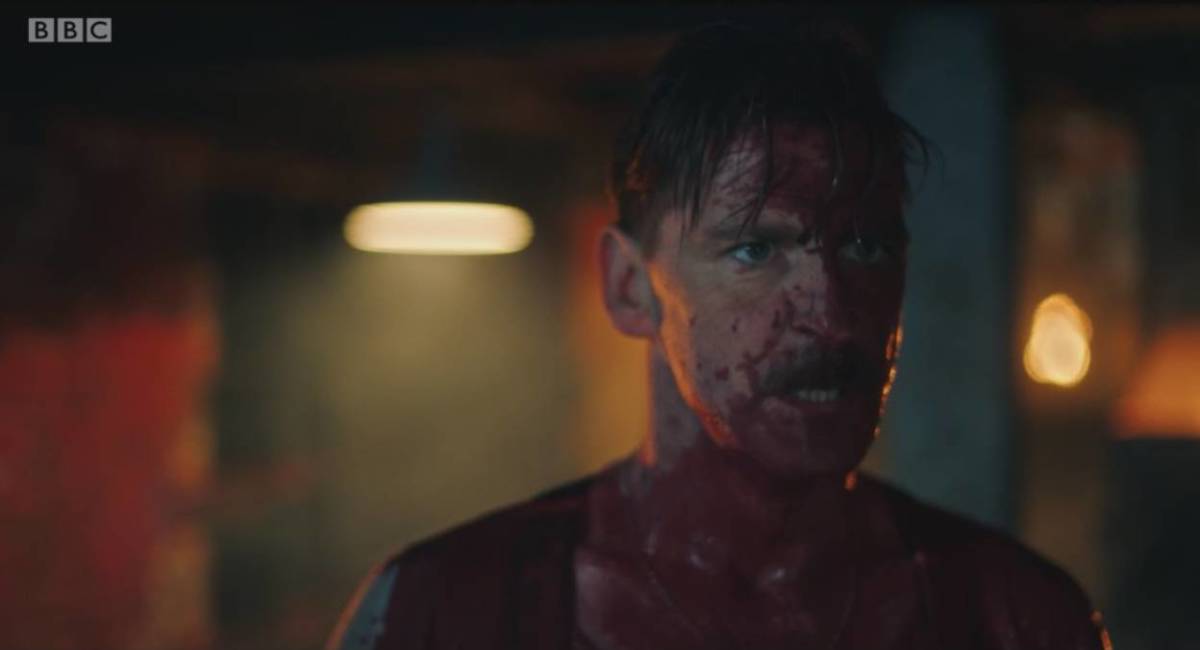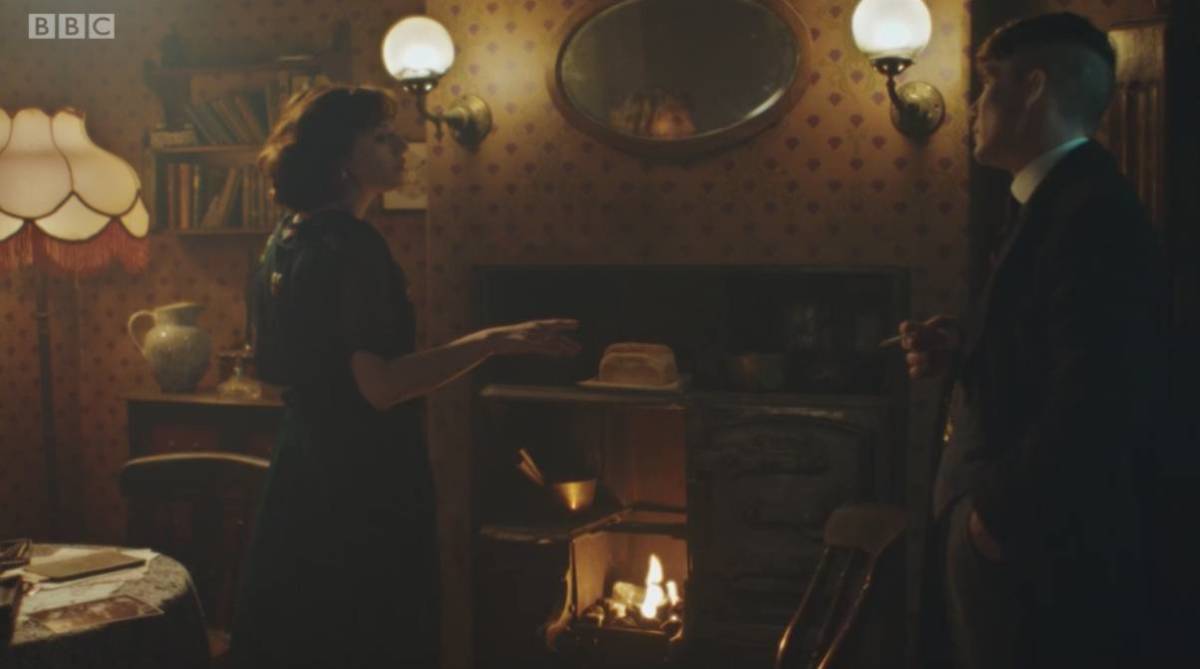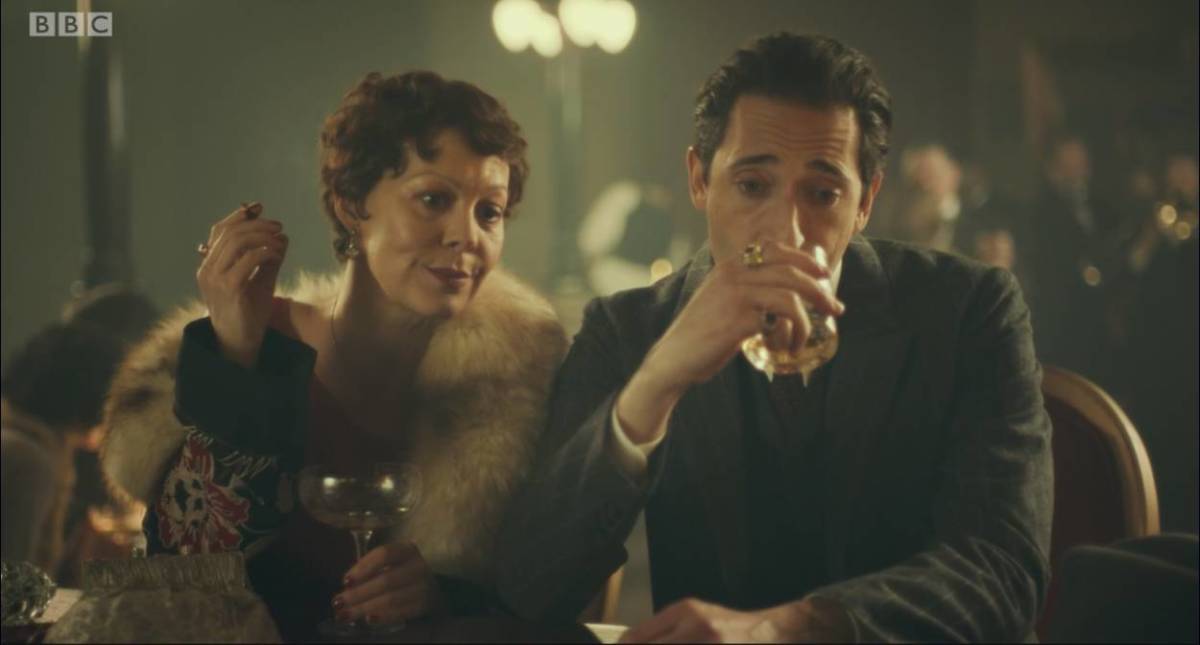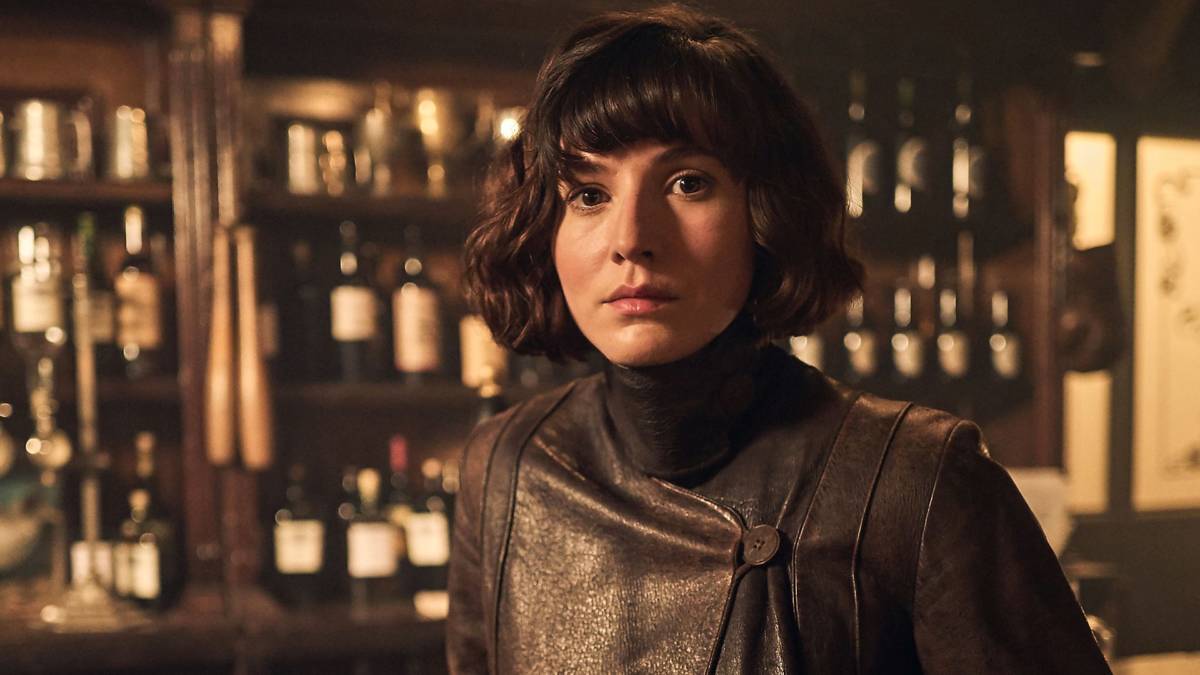With the Shelbys having restaffed their factories with scabs, this week sees Arthur – still dazed from a lunchtime quickie with Linda – have to deal with a pack of communist saboteurs. Despite being alone and armed only with a lump hammer, Arthur sees them off with no worse injury than getting some paint chucked on him – and then gets jumped by a pair of mafia gunmen. He deals with them just as handily.
But despite this strong front in the face of outside aggression – without even needing help from Aiden Gillen and his accent – the Blinders are as vulnerable as ever to the old enemy, internal tensions. Arthur and Linda’s rendezvous (and Arthur’s subsequent hammertime) takes place when he really should be at a family meeting. In his absence, there’s a unanimous vote to throw Changretta’s murder to anyone who wants a pop at it, rather than reserving that particular slice of vengeance for Arthur.

Between that and the factory door being open to let the mafia in, Arthur flies into a paranoid rage, getting incredibly drunk and furiously blaming everyone, no-one, and the world at large – briefly reserving some of his ire for Aberama Gold, but mainly obsessing over the bullet with Changretta’s name on it. Even Linda’s wiles can’t smooth these particular waves – and having Arthur messed-up and shouting in the background as she puts the baby to bed is genuinely uncomfortable viewing.
Come the morning after, though, Linda finally persuades him to fire off the bullet and forget about it. High off the hog from this, she takes up a role in the Shelbys’ bookmakers, the heart and cornerstone of the empire, reconciling it with her Christian faith by noting that she’s not the one making the bets. Polly – newly back on the payroll – would probably have more to say about this if it wasn’t for the fact that dear little Finn has been put in charge of the bookmakers. The ladies react to this in much the same way as if one of the Jonas Brothers wandered into a Motorhead jam session and piped up with ‘you guys know how to play Polly Wallie Doodle?’
Before long, they’re looking up a prostitute for Finn’s first time – even Linda gets in on the fun, with Lizzie noting to Tommy that she’s even swearing now, which just sounds weird. Finn later confesses to Tommy that he was deeply uncomfortable banging a profoundly tired-looking woman who very clearly wasn’t into it. This being the ’20s, nobody’s about to come out and call this rape by proxy – particularly when it’s a guy who’s the victim. Tommy’s advice for him to just man up is, on the face of it, fairly distasteful, but is clearly more about Finn moving up to fill John’s role in the gang.
Tommy himself does his best to rise above the family tensions, but is far from being shot of internal tensions – after all, someone left the factory door open, and he intends to find out who. His initial suspect is the foreman, Mr Devlin, who, damningly, has a one-way ticket to Glasgow in his pocket and has already sent his wife and children up there. However, the foreman has other reasons to skip town – he’s working through a strike while living on a street full of good union men. Faced with Tommy’s cadaverous expression, though, he eventually agrees to stay on.
With one suspect crossed off the list, Tommy looks up Jessie the rabble-rouser, having heard that two Italians with an incredibly poor grasp of English were present at the last meeting of the Small Heath communist party, and putting two and two together. However, this quickly switches gear when it turns out that one of Jessie’s comrades is the sister of Tommy’s pre-war sweetheart Greta, and they get to reminiscing – about how he wasn’t quite as cold-blooded before World War I (despite the old picture of him still bearing that same trademark glower), and about how she also had a pre-war sweetheart, who topped himself after the horrors of Passchendaele.

Most shockingly, this brings the revelation that Tommy was apparently once a communist fellow-traveller. Which has the ring of truth about it, given as he was old pals with, and fought alongside, communist agitator Freddie Thorne, but seems shocking now that he’s employing blacklegs in his many factories and presenting himself as a special constable with state security – though this last seems to have been mainly to put the wind up Jessie.
With this all fresh in his mind, Tommy takes Lizzie on the Blinders’ crude version of a date – a quickie under an arch down by the canal where he and Greta would once wait for one another. Lizzie is sharp enough to wonder if she’s just a stand-in for his lost love. When they’re done, Tommy abruptly orders her to set up some major charitable organisations – because he once promised someone that he’d change the world.
On the other side of the coin, Changretta’s whole thing is being motivated by ghosts from the past – and he isn’t immune to internal tensions either. His attempts to get his men to dress more like Brummies and less like swanky New Yorkers don’t go down particularly well – they’re having enough trouble stomaching the local food. This gives Adrien Brody an opportunity to act Italian rage – which he does extremely well, even with the natural disadvantage of Polish-Hungarian descent.
And finally, there’s Polly – who turns out to be the biggest wildcard on both sides.visiting Michael for the family meeting, she is shocked to discover that his adoptive mother’s been to visit.
Now that she’s back on the payroll, she resolves to celebrate with some good hard sex, on the basis that it’s been far too long. Ada’s attempts to get her to behave herself get instantly and sharply rebuked.
When she goes down to a glitzy night spot dolled up in red and furs, it seems she’s planning to make good on this – only to meet up with Changretta. She offers to give up Tommy if he’s willing to spare the rest of the family. And it’s very possible this is a ploy, but it’s a convincing one – if there was anyone willing to make that offer, it would be her. It’s not as if Tommy’s ever balked at offering up a member of his own family as bait or otherwise.

In classic affable villain way, Changretta hears her out then asks her to dance. Even when she turns him down, it still makes a lovely feed line for him to get the last word once she’s left: a growl of ‘that’s a shame, ’cause you’re dancing with me’ that evokes Jack Nicholson’s ‘you ever dance with the devil in the pale moonlight?’ in Tim Burton’s Batman. appropriate, given that that was the most noirish and mafia-y of the franchise, and that Nicholson is also no stranger to devouring huge chunks of the set to the thunderous applause of critics.
Despite Arthur killing two men incredibly violently near the start, and Polly and Changretta’s scheming by the end, overall this is a slower, fairly contemplative outing for Birmingham’s answer to the Sopranos. Which you might expect at this mid-point, getting everything firmly established before the latter half of the series really ramps things up. Still, unlike many a show before it, Peaky Blinders doesn’t take this as an excuse to degenerate into filler.
Some of the coverage you find on Cultured Vultures contains affiliate links, which provide us with small commissions based on purchases made from visiting our site. We cover gaming news, movie reviews, wrestling and much more.



